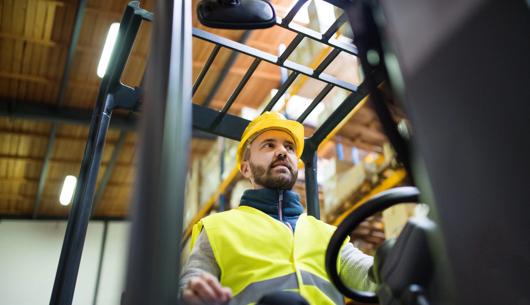Annual progress report on reducing greenhouse gas emissions: the impact of Covid-19 and future challenges for the Government
For the first time, in this year’s report, tools have been provided to Parliamentarians to scrutinise the progress across Whitehall.
The Committee on Climate Change (CCC), which is the body that advises the government on climate change matters, has recently released its annual progress report on reducing greenhouse gas emissions over the past year to
Parliament. The publication of the report is a requirement of the Climate Change Act. The report sets out that in 2020, global emissions are expected to fall by a record 5-10%, with potentially a larger fall than this in the UK. However, the effect of this is only considered to be temporary. In the period 2008-2019, overall territorial emissions reduced by 30% whilst the economy grew by 15%. In the last year, there was a 3-4% reduction in emissions, which was the seventh year in a row that emissions fell. Emissions as a result of imported products consumed in the UK fell by 18% from 2008-2017, despite growing consumption over the same time period. A key reason for a reduction in emissions is as a result of the decarbonisation of the power sector.
Despite these reductions in emissions, the UK is only on track to meet four of 21 indicators of progress that the CCC monitors, two of which are in the power sector. In addition, the Government has only fully achieved two milestones out of the 31 set out in the 2019 Progress Report.
Notably, the report has recommended that “Ministers seize the opportunity to turn the COVID-19 crisis into a defining moment in the fight against climate change”. The report also notes that a limited number of steps have been taken over the past year in order to support the transition to a Net Zero economy and improve the UK’s resilience in terms of dealing with the impacts of climate change, and much still remains to be done. The committee has said that “progress remains significantly off track in adaption to build climate resilience”. It is also noted that strong domestic action is needed to allow the UK Government to provide the internal leadership required on these issues, particularly as it takes on the president of the COP26 summit in 2021. Regarding this, the report states that “the UK’s international credibility is on the line”.
A number of recommendations as part of the policy framework that were introduced since the target was set a year ago have not been delivered and therefore must progress in this coming year. Key observations to note on this are as follows:
“The UK Government has instigated a Cabinet Committee on Climate Change, chaired by the Prime Minister, as we recommended last year. However, it did not meet until March this year, five months after its creation. The Cabinet Committee should meet regularly (e.g. monthly) and report transparently against its goals "to hold departments to account for their actions to combat climate change" (which should include adaptation actions) and to "co- ordinate" the Net Zero strategy.”
“A Treasury Net Zero Review has commenced to "consider how the transition to Net Zero will be funded and assess options for where the costs will fall", in line with the Committee's recommendation. A just transition is a crucial part of meeting our Net Zero target. The review should feed in immediately to plans for the COVID-19 recovery and put Net Zero at the heart of the UK's economic strategy.”
“The National Infrastructure Strategy, due to set a vision for infrastructure development over the next 30 years consistent with Net Zero, has been delayed from Budget 2020. It should prioritise early funding for areas needing public finance that will support the recovery and prepare for Net Zero and require that all new investments should assess and plan for the impacts of climate change. Important priorities include: energy efficiency and avoiding over-heating in buildings; electric vehicle charging infrastructure; hydrogen production and carbon storage infrastructure; 5G and fibre broadband; and risk management for flooding and coastal erosion.”
For the first time, in this year’s report, tools have been provided to Parliamentarians to scrutinise the progress across Whitehall through an overview of key actions which must be undertaken on a department-by-department basis. The has set out five “investment priorities” to be considered by the government in terms of how climate policies can support economic recovery that will be needed as a result of the COVID-19 pandemic. These are:
- Low-carbon retrofits and buildings that are fit for the future;
- Tree planting, peatland restoration, and green infrastructure;
- Energy networks must be strengthened;
- Infrastructure to make it easy for people to walk, cycle, and work remotely; and
- Moving towards a circular economy.
The CCC has also set out opportunities to support the transition to a lower-carbon economy by investing in the UK’s workforce and innovation to encourage these types of behaviours, which include:
- Reskilling and retraining programmes;
- Leading a move towards positive behaviours; and
- Targeted science and innovation funding.
As can be seen there are considerable challenges that the Government faces in the months and years ahead in terms of achieving our Net Zero target. However, there are some interesting and encouraging points that can be taken away from the report, particularly in the current circumstances:
- The effect of the COVID-19 pandemic has shown that it is possible for large scale societal change to occur rapidly, and the Government is able to take a leading role in driving that change.
- The COVID-19 pandemic may also provide conditions to enable the Government to reinforce behaviours that would help us to drive towards a lower-carbon economy, such as increased remote working, cycling and walking.
- Strong leadership from the public sector would also help change some of these societal norms that will help us move towards a Net Zero society.
- In addition, the delay of COP26 to November 2021 has provided a window of opportunity for the government to address and tackle the policy deficit and to establish a comprehensive Net Zero package that will help to show the UK’s credibility in climate issues on the global stage.







































